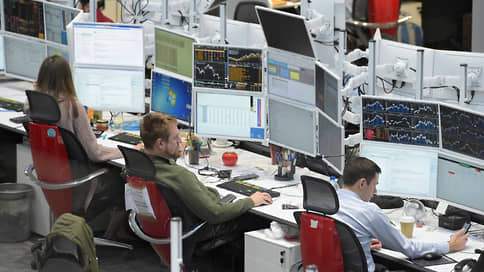Managers cashed out the risks
[ad_1]

Global Portfolio Managers have driven the cash share of funds to the highest level since 2001. Investors are worried about the aggressiveness with which the regulators of the largest developed economies are raising rates, which, combined with high geopolitical risks, could worsen development prospects. In such conditions, investments in shares are reduced. Investments in foreign securities are also reduced by Russian players, who are afraid of high infrastructure risks.
Portfolio managers have sharply increased cash holdings in investment funds, according to a September survey conducted by Bank of America (BofA). Representatives of 240 funds with total assets of $95 billion took part in the survey. According to the survey, the average share of cash rose from 5.7% in August to 6.1%, thereby returning the figure to its highest level in 21 years. At the same time, 60% of respondents stated that they accept investment risks below the norm. Managers have never been more pessimistic in more than 20 years of observations.
The increase in cash reserves was facilitated by increased fears about the aggressive monetary policy of the Fed, which could negatively affect the economy of the country and the whole world. At the end of August, the head of the American regulator, Jerome Powell, said that the main goal of the regulator is to reduce inflation, and for this it is necessary to maintain a tight monetary policy. In addition, he noted that another significant rate increase is possible at the Fed meeting in September.
“A fairly clear signal was given to the market – the Fed is going to raise the rate so that the slowdown in economic activity will reduce the growth rate of consumer inflation. Moreover, it is ready to endure low economic growth rates and rising unemployment for a sufficient time to curb inflation,” notes Sergey Fedyanin, financial analyst at Accent Capital.
The rapid growth of rates is observed in other developed countries. Last week, rates at 75 bp. p. raised the Bank of Canada and the ECB. “The tightening of monetary conditions is taking place against the backdrop of a turbulent geopolitical situation and high energy prices, which makes economic growth difficult,” explains Mikhail Bespalov, an analyst at KSP Capital Asset Management.
Under such conditions, record-breaking managers are reducing investments in the most risky asset class – stocks. According to the survey, the number of portfolio managers whose share of investments in shares remained below the indicative level was 52% higher than the number of those whose share was higher. Over the month, the preponderance of pessimists has doubled.
Investors have not looked at stocks so negatively since the start of BofA research. Interest in the shares of European companies fell most intensively. According to BofA, the number of managers with a share of such securities in the portfolio below the indicative level was 42% higher than the number of those with a higher indicator. This is the worst indicator in the history of observations. Sales also increased in other emerging markets, the US, Japan and the UK.
Interest in foreign shares is also declining on the part of Russian investors. According to Kommersant’s estimates, based on Investfunds data, in August the net outflow from retail funds oriented to the securities of foreign companies amounted to 770 million rubles.
This withdrawal of funds, according to Eduard Kharin, head of Alfa Capital’s share management, is associated not only with the growth of global risks, but also with the growth of infrastructure risks. According to the First Deputy Chairman of the Central Bank Vladimir Chistyukhin, the European Union has blocked foreign securities of Russian residents in NSD for 6 trillion rubles.
At the same time, market participants warn that, despite the isolation of the Russian market, the Russian economy remains dependent on the global economy, primarily through commodity companies. In the event of a downturn in the global economy, Artem Perminov, a senior analyst at Pervaya, believes, we can expect a decrease in demand in the commodity markets, which in the context of the Russian market will create pressure on the papers of companies from the oil and gas and metallurgical sectors.
[ad_2]
Source link





